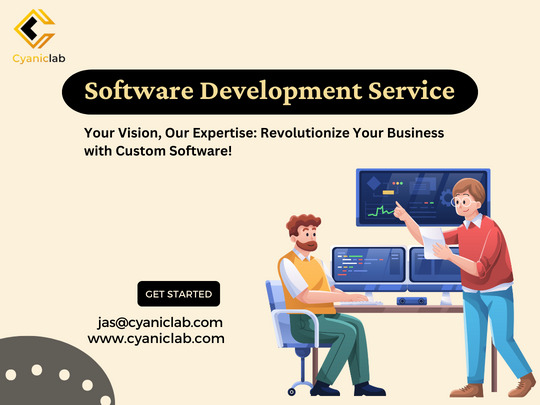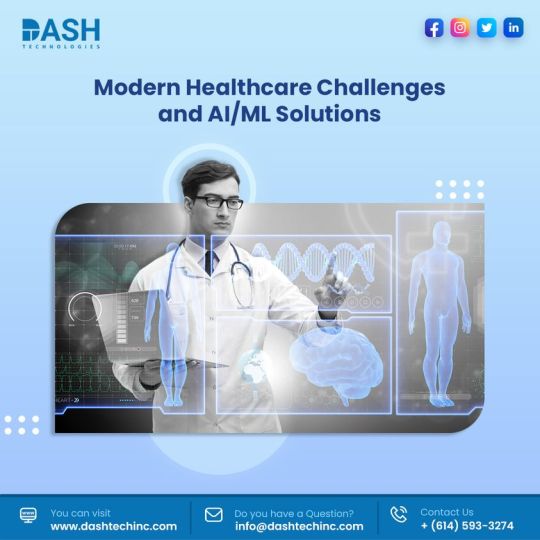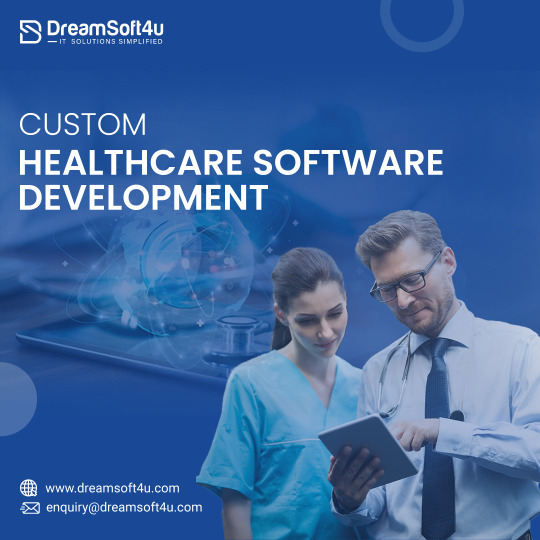#Healthcare Software Development Companies
Link
The correct infrastructural and technological elements, such as funding relevant healthcare software development initiatives, might, nevertheless, lead to tremendous growth. In order to attain personalized healthcare, you may also be seeking for medical app development, telemedicine app development solution, care management solutions, wearable app development, or any other healthcare solutions. If you require healthcare software development, get in touch with Emrophis Technologies, and we'll point you in the direction of top-tier software solutions.
Some of the trending solution in healthcare are telemedicine app development and telehealth app development
Also Check the blog for Digital transformation in healthcare
#telemedicine app development solution#digital transformation in healthcare#healthcare app development#Healthcare Software Development Companies#healthcare software development roi#healthcare software development#personalized healthcare#telehealth app development#telemedicine app development solutions#telemedicine app development#telemedicine app development company#telemedicine app development in usa#medical app development#medical software development#digital healthcare#Digital Transformation#transformation#healthcare#healthcare software solution#telemed#telehealth#mobile app development
5 notes
·
View notes
Text

Cyaniclab stands as a leading software company, offering a comprehensive range of services tailored to meet diverse business needs. Renowned for our excellence in healthcare software solutions company, we take pride in our role as a trusted partner for countless satisfied clients. With a track record of successfully delivering over 50 projects, we assure quality and reliability in every endeavor. Whether you seek offshore software development expertise or innovative web solutions, Cyaniclab is your dedicated ally in achieving digital success
#software development company#leading software company#offshore software development company#healthcare software development companies
1 note
·
View note
Text
Ready to dive into the world of healthcare's leading software developers? We'll be exploring the top 10 Healthcare Software Development Companies who are shaping the future of medical technology. These innovators stand out with cutting-edge software, a commitment to quality, and a deep understanding of the evolving healthcare environment. This reframed version uses more engaging language and emphasizes the forward-thinking nature of these companies. It also shortens the sentence for better readability.
#health app development services#health app development company#health app development company in USA#Healthcare Software Development Companies#Healthcare Software Development Companies in USA
0 notes
Text
#custom software development companies#banking software development companies#best lead management software providers#custom software development services#healthcare software development companies#ecommerce app development company
0 notes
Text
Pioneering Healthcare Solutions: The Role of a Medical Software Development Company
In the rapidly evolving landscape of healthcare, technology plays an instrumental role in transforming patient care, streamlining operations, and advancing medical research. At the heart of this technological revolution lies the expertise of medical software development companies. These specialized firms are dedicated to creating innovative solutions that empower healthcare providers, improve patient outcomes, and drive efficiency across the industry.
The Crucial Intersection of Medicine and Technology
The integration of technology into healthcare has given rise to a new era of patient-centric care and data-driven decision-making. Medical software development companies are at the forefront of this movement, creating bespoke software solutions that cater to the unique needs of healthcare providers, from small clinics to large hospital systems.
**1. Tailored Electronic Health Records (EHR) Systems
Electronic Health Records (EHR) have become the backbone of modern healthcare. They provide a comprehensive digital record of a patient's medical history, diagnoses, medications, treatment plans, immunization dates, allergies, radiology images, and laboratory test results. Medical software development companies excel in crafting EHR systems that are intuitive, secure, and seamlessly integrated with existing workflows.
By customizing EHR solutions, these companies ensure that healthcare providers can access critical patient information with ease, leading to faster diagnoses, more accurate treatment plans, and improved patient safety.
2. Telehealth Platforms for Remote Care
The COVID-19 pandemic accelerated the adoption of telehealth, making it an indispensable tool for providing care remotely. Medical software development companies have been instrumental in developing user-friendly telehealth platforms that facilitate virtual consultations, enabling patients to receive timely medical advice from the comfort of their homes.
These platforms often incorporate features such as video conferencing, secure messaging, and appointment scheduling. They are designed to ensure compliance with healthcare regulations while delivering a seamless and intuitive experience for both healthcare providers and patients.
3. Medical Imaging and Diagnostic Tools
Medical imaging is a cornerstone of modern medicine, enabling accurate diagnoses and treatment planning. Medical software development companies work in tandem with radiologists and imaging experts to create sophisticated software for tasks like image reconstruction, segmentation, and analysis. These tools enhance the accuracy and speed of diagnoses, ultimately leading to better patient outcomes.
4. Clinical Decision Support Systems (CDSS)
CDSS leverage data analysis and artificial intelligence to assist healthcare providers in making informed clinical decisions. These systems integrate with EHRs and other health information systems to provide real-time recommendations based on evidence-based guidelines and patient-specific data.
By collaborating with medical experts, software development companies refine these systems to ensure they are reliable, accurate, and capable of adapting to the evolving landscape of medical knowledge.
5. Data Security and Compliance Solutions
Ensuring the confidentiality and integrity of patient data is paramount in healthcare. Medical software development companies develop robust security protocols, encryption algorithms, and compliance solutions to safeguard sensitive information. They stay abreast of evolving regulatory requirements, such as HIPAA (Health Insurance Portability and Accountability Act), and continuously update their software to maintain compliance.
The Future of Healthcare Innovation
As medical knowledge and technology continue to advance, the role of custom software development companies becomes even more pivotal. They are poised to drive innovation in areas such as artificial intelligence, genomics, personalized medicine, and the Internet of Things (IoT). By partnering with healthcare professionals and researchers, these companies are at the vanguard of pioneering solutions that will shape the future of healthcare.
In a world where every second counts and accuracy is paramount, the collaboration between healthcare providers and medical software development companies represents a beacon of hope for improved patient care, streamlined operations, and groundbreaking medical discoveries. Together, they are not only advancing healthcare, but also revolutionizing the way we approach and experience wellness.
0 notes
Text

Modern Healthcare Challenges and AI/ML Solutions!
The healthcare system worldwide has always faced challenges, though life changing innovations, like IoT, AI/ML, Big Data have helped to resolve the pain points. Want to explore how the trending tech supports modern healthcare save lives providing better treatment and care?
#Healthcare Software Development#Healthcare Software Development Companies#Custom Healthcare Software Development#Epic Healthcare Software#Healthcare Custom Software Development
0 notes
Text
Top 5 Examples of Machine Learning in Healthcare
1: Robotic Surgery
Robotic surgery has recently been gaining tremendous popularity. In the use of robotics for surgical procedures in the healthcare industry, machine learning innovations assist. There will be several advantages of replacing human surgeons with robots, such as procedures in smaller environments, with finer precision, and dramatically reducing the likelihood of human-based challenges, such as shaking hands. In robotic surgery, machine learning focuses mainly on machine vision and is used to measure distances to a far greater degree of precision or to classify particular sections or organs within the body.
2: Medical Imaging
It gives visual representations of organs and tissues at the level of the cell, which greatly contributes to the detection of prognosis and disease. To balance the possible harms and advantages, we need to justify and improve the quality of medical imaging each time.
3: Improving Patient Care
Using AI to process the medical history and laboratory history of a patient will help to predict the risks of illnesses, including diabetes, cardiovascular disease, etc. It can also help healthcare professionals to understand patient behaviors and see where future patient needs can occur by using AI to process this information. AI technology can handle more information faster than any human being, making it a perfect complement to the medical profession of any clinician and a very powerful way to collect actionable data.
For instance, a use that may really alter the lives of patients is to forecast the chance of and detect diseases with AI. Using advanced algorithms with patient data sets and sources can help to scan for diseases with a very high degree of accuracy for doctors and other medical professionals. The aim is not to substitute medical practitioners, but to use AI as clinical decision support for those practitioners and “another pair of eyes” to reduce the risk of mistakes.
4: Preventing and Quickly Treating Infections
Organizations such as Health Catalyst work to decrease Hospital Acquired Infections (HAIs) by using AI. We will lower the mortality and morbidity rates associated with them if we will detect these harmful infections early. Although some organizations are focusing on tracking patients most at risk for HAIs, such as Health Catalyst and Massachusetts General Hospital, others are working to build algorithms around provider habits such as hand washing routines.
5: Better Radiotherapy
In the field of radiology, the benefits of machine learning in healthcare are one of the most sought after. There are several discrete variables in medical image processing that can also occur at some unique moment in time. There are several cancer focal points, tumors, etc. that cannot be modeled using complicated equations. Since the algorithms of machine learning often learn from the multitude of different samples available on the side, as often it is much easier to make some of the diagnoses and identify the actual variables.
Challenges of Machine Learning in the Healthcare Industry
Data is both a barrier to entry and a stake in the table. Some Healthcare Software Development Companies get stuck trying to find the correct data set for the problem they are trying to solve and get so picky that the project is efficiently derailed. Others go in another direction and do not do enough due diligence on their results, making it questionable to achieve any outcomes.
1: Adoption
The other challenge is adoption, clinicians are less conservative than they were when I first started, and we have learned a lot about how to optimize adoption, but algorithms and outcomes are a bit black boxes in some instances and clinicians need to understand how results are produced and that behind them there is evidence, ‘Trust Me’ does not work with your spouse or doctor.
2: Clinical Trials for Drug Development
Conducting successful clinical trials is one of the greatest challenges in drug growth. As it stands now, according to a study published in Trends in Pharmacological Sciences, it can take up to 15 years to bring a new, and potentially life-saving, drug to the market. It can cost between 1.5 and 2 billion dollars, too. In clinical trials, about half of the time is expended, many of which fail. However, researchers can classify the right patients to engage in trials using AI technology. They can also more effectively and reliably track their medical responses, saving time and money along the way.
3: Personalized medical treatment
It is one of the most important challenges in the industry because every patient wants a better cure, more attention paid, as well as more productive prescribed medicines. A self-trained AI will become better and better at managing the service, particularly given all its experience.
Conclusion
Dreamsoft4u works for the Healthcare IT Services in India and USA. Our best services include Healthcare Software solutions and EMR Software and also have best practices in Wearable App Development Company for healthcare purposes. We feel proud to say that we work for our India, USA, Australia, and UAE-based clients.
Article source: https://www.dreamsoft4u.com/blog/machine-learning-applications-in-healthcare
#Healthcare IT solutions#healthcare industry#AI technology#Healthcare Software Development Companies
0 notes
Text
Tips for Selecting the Right Web Development Company: A Guide to Help Businesses Choose

In today’s digital world, having a well-fortified online presence is climacteric for businesses of all sizes. A well-designed and functional website is the foundation of any online strategy, and web development plays a vital role in creating a website that effectively represents a business and engages its target audience. However, selecting the best web development company in Noida can be a daunting task with the plethora of options available in the market. In this article, we will discuss 12 tips that can help businesses in selecting the right web development company to meet their specific needs and requirements.
Read more: https://medium.com/@liveupxprivate/tips-for-selecting-the-right-web-development-company-a-guide-to-help-businesses-choose-4addf2b2a1b6
#digitalmarketing#webdesign#seo agency#digital marketing#online marketing#liveupx#website development#enterpreneur#enterprenuership#healthcare#seo services#saas software#software company
14 notes
·
View notes
Text
#Healthcare Software Development company#Hospital Management Software Development#best healthcare software development company#Developing Effective Healthcare Management Software#custom software development company#offshore custom software development
0 notes
Text
Ready to learn more about how Performix can help you with IT staff augmentation? Visit our website and connect with our team today.
#manufacturing software development services#manufacturing software development company#travel and hospitality software solutions#restaurant software development#digital revolution in manufacturing#digital healthcare revolution
0 notes
Text
#cloud application development#custom software development company#app development company#mobile app developer#best app development software#healthcare app developers#software development company#iot developers#largest app developers#internet of things app development#app building agency
0 notes
Text

Tech Avtar excels in AI Automation Software Development, boasting a team of skilled engineers dedicated to crafting cutting-edge solutions. For further insights, reach out to us at +91-92341-29799 or explore our website.
#Neighborhue Frontend Vercel#Software Dev Company in India#top web development services company#software solution company#Affordable product design service company#cloud and devops services in 2024#Best analytic solutions company#Best Tech Blogs in 2024#Creating an AI-Based Product#best ai chat bot development company#healthcare custom software development#ERP Management System#WhatsApp Bulk Sender#software development for healthcare
0 notes
Text
#software development solution#custom software development companies#mobile app development software#healthcare software development companies#fintech software development company#custom software development services#banking software development companies#medical device software development companies#ecommerce app development company#software development solutions company#enterprise application development services#best lead management software providers
0 notes
Text
Steps to Successfully Implement Custom Healthcare Solutions in Your Organization
In the rapidly evolving landscape of healthcare, organizations are increasingly turning to custom healthcare solutions to enhance patient care, streamline operations, and stay competitive. Implementing these solutions successfully requires careful planning and execution. Here are the essential steps to ensure a smooth and effective implementation process:
1. Assess Your Organization's Needs: Before diving into customization, thoroughly assess your organization's specific needs and challenges. Engage with key stakeholders, including healthcare providers, administrators, and IT personnel, to gain insights into what custom solutions are required. Identifying pain points and priorities will guide the development process.
2. Choose the Right Development Partner: Selecting the right development partner is critical. Look for a reputable healthcare software development company with a proven track record in developing custom solutions for healthcare organizations. Consider factors such as their experience, expertise, industry knowledge, and ability to comply with healthcare regulations like HIPAA.
3. Define Clear Objectives: Clearly define the objectives and goals you want to achieve with your custom healthcare solution. Whether it's improving patient engagement, enhancing data analytics, or optimizing administrative processes, having well-defined objectives will guide the development process and help measure success.
4. Design a Comprehensive Plan: Develop a detailed project plan that outlines timelines, milestones, and responsibilities. This plan should encompass all phases of the project, including requirements gathering, design, development, testing, and deployment. Allocate resources and budget accordingly.
5. Ensure Regulatory Compliance: In healthcare, compliance with regulations like HIPAA and GDPR is non-negotiable. Your custom solution must adhere to these standards to protect patient data and maintain legal and ethical integrity. Ensure that your development partner has expertise in healthcare compliance.
6. Collaborate with End Users: Involve end users, such as healthcare providers and staff, in the development process from the beginning. Their input is invaluable for creating a solution that aligns with their workflow and preferences. Regular feedback and collaboration can help avoid costly revisions later.
7. Develop and Test: The development phase involves creating the custom solution based on the defined requirements. Rigorous testing is essential to identify and rectify any bugs or issues. Conduct user acceptance testing (UAT) to ensure that the solution meets user expectations and functions as intended.
8. Train Your Team: Provide comprehensive training to your staff on how to use the custom solution effectively. Training should cover both technical aspects and workflow integration. Encourage staff to ask questions and seek clarification to ensure a smooth transition.
9. Monitor and Evaluate: Once the custom healthcare solution is deployed, monitor its performance closely. Collect data on key performance indicators (KPIs) and gather user feedback. Regularly evaluate the solution's effectiveness and make necessary adjustments to improve its performance.
10. Ensure Ongoing Support: The journey doesn't end with implementation. Establish a support system to address issues, provide updates, and make enhancements as needed. Effective post-implementation support ensures the long-term success and sustainability of your custom healthcare solution.
11. Communicate and Celebrate Success: Share the success of your custom healthcare solution with your organization. Communicate the benefits and improvements achieved through its implementation. Recognize and celebrate the contributions of your team and stakeholders who made it possible.
In conclusion, successfully implementing custom healthcare solutions in your organization requires careful planning, collaboration, compliance, and ongoing support. By following these steps and leveraging the expertise of a trusted custom healthcare software development partner, you can harness the power of custom solutions to drive positive changes in patient care and operational efficiency within your healthcare organization.
#healthcare software development companies#software development for healthcare#healthcare mobile app development
0 notes
Text

Custom healthcare software development services can be defined as designing, developing, deploying, and maintaining software for medical professionals so that they can seamlessly interact with patients, better use medical data analytics, and access patient health records. It helps healthcare providers in offering better patient experiences at cost-effective pricing.
#healthcare software solutions#healthcare software development#healthcare software companies#custom healthcare software development
0 notes
Text
Revolutionizing Healthcare: Custom Software Development Services
Discover tailored solutions for healthcare with our custom software development services. Streamline operations, enhance patient care, and stay ahead in a rapidly evolving industry. Partner with us to build innovative, secure, and scalable software solutions designed specifically for your healthcare needs.
#medical software development companies#medical app developers#healthcare mobile app development#custom healthcare software development services#Custom Healthcare Software Development#healthcare app development services
0 notes